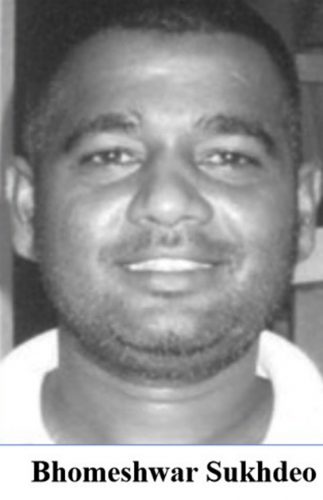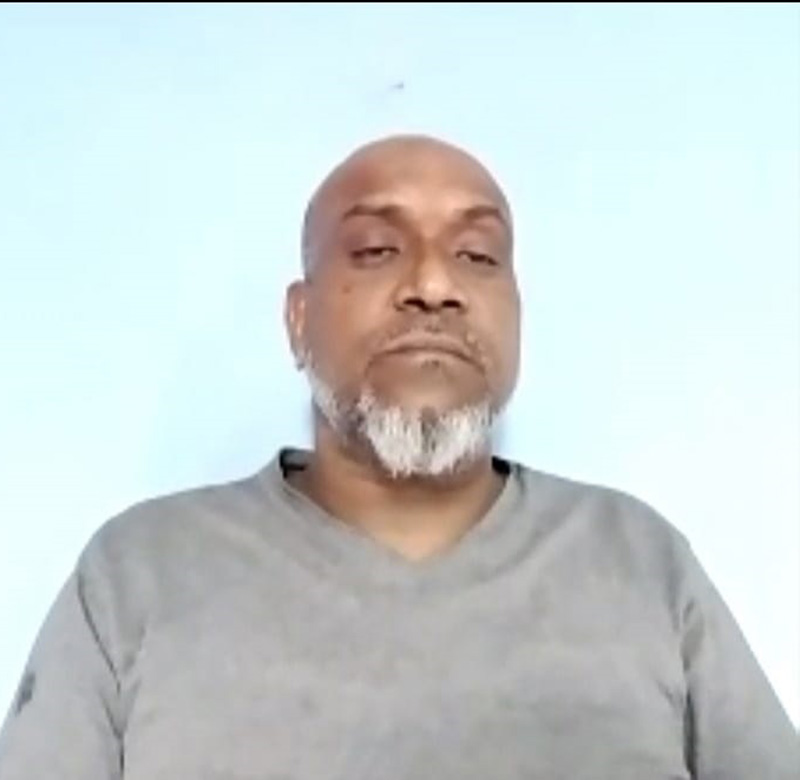Finding for the third time within the last week, the 60-year base sentence applied by Justice Navindra Singh as being excessive and without jurisprudential basis, the Guyana Court of Appeal has again reduced a sentence imposed by the judge.
This time, the appellate court reduced from 80 to 35 years—the sentence which had been imposed upon Balram Singh—for the 2010 murder of taxi driver Bhomeshwar Sukhdeo, whose burnt remains had been found dumped on the Mocha Access Road.
As consistently highlighted in its criticism of those sentences, the local appellate court emphasized again yesterday that the 60-year base does not conform to any legal principle.

Justice Singh always commences his sentencing for convictions for murder at a base of 60 years.
Acting Chancellor Yonette Cummings-Edwards who delivered the judgment said that having regard to established precedent in case law authority, a range between 30 to 35 years is appropriate.
She said that the apex court—the Caribbean Court of Justice—has also established that stated reasons, taking cognizance of both aggravating and mitigating factors, ought to be considered when arriving at a base.
She noted, also, that in the absence of specific reasons for a deviation, credit ought to have been given for remission of time spent in pre-trial custody.
None of these the Chancellor said was found to have been done.
On behalf of the appellate Bench comprising Justices of Appeal Dawn Gregory and Rishi Persaud, the Chancellor said; “In our view, the base years used by the trial judge was extremely out of character.”
Referencing the nature and gravity of the offence, however, the Court said it found the higher end of the range to be more appropriate. From the 35 years, the Court further ordered that deductions be made for time spent on remand.
In his appeal Singh (the appellant), argued among other things that the trial judge imposed a sentence which was “manifestly excessive,” and that there was no legal or other basis to so support.
Assistant Director of Public Prosecutions, Dionne McCammon had argued, however, that the sentence imposed by the trial judge who has the wide discretion to so decide, was reasonable, especially considering that a sentence of death could have been imposed instead.
Through his attorney Nigel Hughes, Singh had said that the judge who then made additions to that base, did so without any jurisprudential basis, while arguing that murder is not aggravated by the fact that a felony had been committed, but that it was in the course of the commission of a felony that the murder occurred.
Those additions—10 years for premeditation and another 10 years because a robbery was committed during the commission of the murder, were also stripped by the appellate court.
The complaint about the sentence was the only ground of appeal on which the appellant succeeded.
He had also advanced that his defence was not adequately put to the jury, which he contended was an irreparable error, fatal to his case.
The Court, however, found otherwise—that the trial judge had not only adequately put the appellant’s case to the jury—but had also given the panel adequate directions on how to treat therewith and balance as well as the case advanced by the State.
Singh was convicted on December 9th, 2015 for the capital offence which stated that he, between January 19th and 27th, 2010, murdered Sukhdeo.
According to a caution statement, which was admitted into evidence and read to the court, Singh confessed that he and an associate, Travis David, had murdered Sukhdeo.
The court had heard from the statement that David shot Singh in the left side of his neck with a .38 revolver and that they later dumped the body on the Mocha access road.
The prosecution had said that Sukhdeo, who operated his car outside Guyana Stores Limited, went missing on January 19th, 2010 and was found eight days later.






